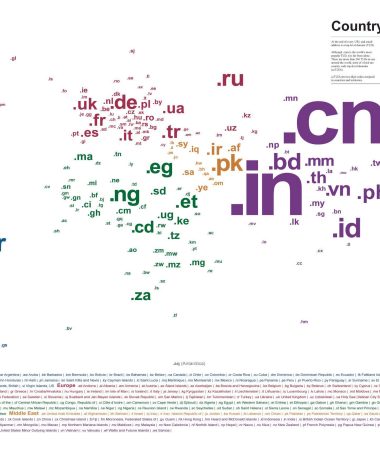In an age where online presence often defines the first impression a person or a business makes, domain names have become more than just web addresses. They are assets, identities, and sometimes, highly prized commodities.
But not all domain names are created equal. Some are sold for millions of dollars, while others barely fetch registration costs. Understanding what makes a domain name valuable is a matter of analyzing both objective factors and the subtle nuances of branding, language, and timing.
Brevity and Memorability
Short domain names have always held an elevated status in the digital marketplace. They are easier to remember, faster to type, and generally less prone to errors when shared verbally or through advertising. A domain like “mint.com” or “zoom.us” exemplifies how concise branding translates to widespread recognition. The fewer characters a domain has, the more potential value it can command, especially if it includes no hyphens or numbers.
Memorability, however, is not just about length. A domain that aligns perfectly with a brand or concept—something intuitive and sticky—also becomes valuable. This is why domains like “freelancer.com” or “booking.com” work so effectively: they describe the service while being easy to recall.
Keyword Relevance and SEO Impact
A domain that includes keywords relevant to a particular industry or niche can carry intrinsic value due to its impact on search engine optimization (SEO). Domains like “hotels.com” or “insurance.com” attract organic traffic simply by aligning with high-volume search terms. These keyword-rich domains are particularly attractive to companies looking to reduce their reliance on paid search advertising while maximizing visibility.
However, search engines have evolved. While exact-match domains (EMDs) used to guarantee top rankings, modern algorithms favor content quality and user experience. Even so, EMDs still hold strategic value when integrated into a strong content strategy.
Commercial Intent and Industry
The industry a domain targets can dramatically influence its value. Real estate, finance, travel, health, and e-commerce are sectors where digital competition is fierce, and a premium domain can provide a competitive edge. Domains related to high-cost or high-demand industries are naturally more valuable.
For instance, a domain like “loans.com” has immense commercial potential because of the financial weight and customer acquisition cost associated with that market. Similarly, names tied to emerging sectors like cryptocurrency, AI, or green energy have seen a surge in valuation as investor interest grows.
Brandability and Emotional Resonance
Brandable domain names are unique, often invented words or clever adaptations of existing terms. Examples include “Zappos,” “Spotify,” or “Squadhelp.” These names don’t rely on keywords but instead evoke a feeling or tell a story. The value lies in their ability to stand out in crowded markets, secure strong brand identity, and foster customer loyalty.
Brandability also relates to phonetics. A name that is easy to pronounce, globally understandable, and free of awkward spelling will generally perform better. Domains that pass the “radio test”—meaning someone can hear the name once and type it correctly—are especially prized.
Domain Extension and Perceived Legitimacy
While many new top-level domains (TLDs) have emerged in recent years (.tech, .store, .app), the “.com” remains the gold standard. It is globally recognized, associated with trust, and often the first extension people try when typing a domain. A great domain on a lesser-known TLD rarely carries the same weight as the same name on a .com.
That said, niche-specific TLDs can be valuable within their context. For example, “design.agency” might resonate strongly within the creative services industry. Still, the resale market consistently shows a significant premium for “.com” domains.
Age and Historical Usage
Older domains, especially those that have been consistently active, can have increased value due to their established web presence. These domains may carry SEO benefits, existing backlinks, and a reputation within their niche. If the domain has never been penalized by search engines and maintains a clean history, its desirability increases.
On the flip side, domains with a controversial or spammy past can lose value or require reputation management efforts. Tools that track WHOIS history and archive snapshots can help buyers assess a domain’s background.
Market Trends and Cultural Shifts
The value of a domain is also tied to cultural zeitgeist and market movements. A name like “metaverse.io” might have been relatively obscure a decade ago, but surged in value as the concept gained mainstream attention. Domains related to NFTs, remote work, climate tech, and digital wellness are also enjoying spikes due to broader societal interest.
Timing is everything. Holding a domain just before a boom in its related sector can lead to massive windfalls. Domain investors (also known as “domainers”) often try to anticipate these shifts, securing names they believe will become desirable.
Legal Cleanliness and Ownership Clarity
A domain’s value can be seriously hindered by trademark disputes or unclear ownership records. Buyers are wary of potential legal entanglements, so a domain that is clearly owned and free of intellectual property conflicts will always be worth more. Conducting proper due diligence and securing trademarks, if appropriate, is a crucial step for anyone looking to invest in premium domains.
The availability of the domain’s WHOIS record and ease of transfer through a recognized registrar also play into perceived value, especially for high-ticket sales.
Cultural, Linguistic, and Global Accessibility
In a globalized market, a domain that works well in multiple languages and cultures has broader appeal. Words that are neutral, positive, or easily translatable have an advantage. Conversely, domains with accidental negative connotations in other languages or that are difficult to pronounce internationally may be limited in scope.
Brands looking to expand globally often seek domains that won’t alienate non-native speakers or require complicated localization efforts. This is part of why simple, one-word English domains often command top dollar: they are broadly understood and easily adopted.
A valuable domain name is the intersection of timing, language, clarity, strategy, and market demand. It can be the digital cornerstone of a brand’s identity, an SEO asset, or an appreciating investment. While trends and technologies will continue to evolve, the fundamental characteristics that make a domain valuable remain rooted in human behavior: how we speak, how we remember, how we search, and how we connect.
This understanding is what separates generic digital assets from those rare domain names that become household words—and million-dollar investments. For those exploring this digital frontier, what makes a domain name valuable is not just a technical question but a strategic one, deeply tied to how we communicate and do business in the online world.








